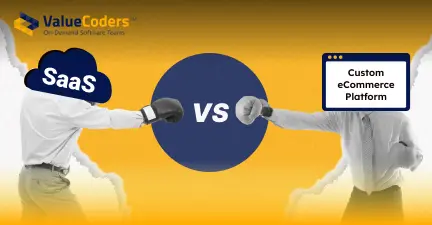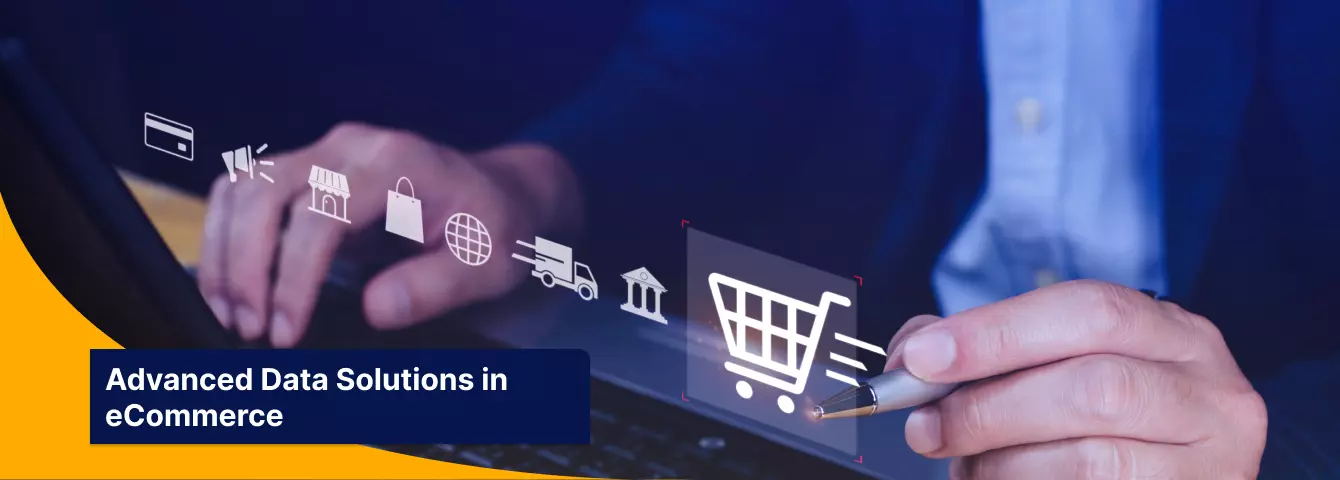Do you know?
Global retail eCommerce sales hit around $5.8 trillion in 2023 and are expected to grow by 39% to exceed $8 trillion by 2027.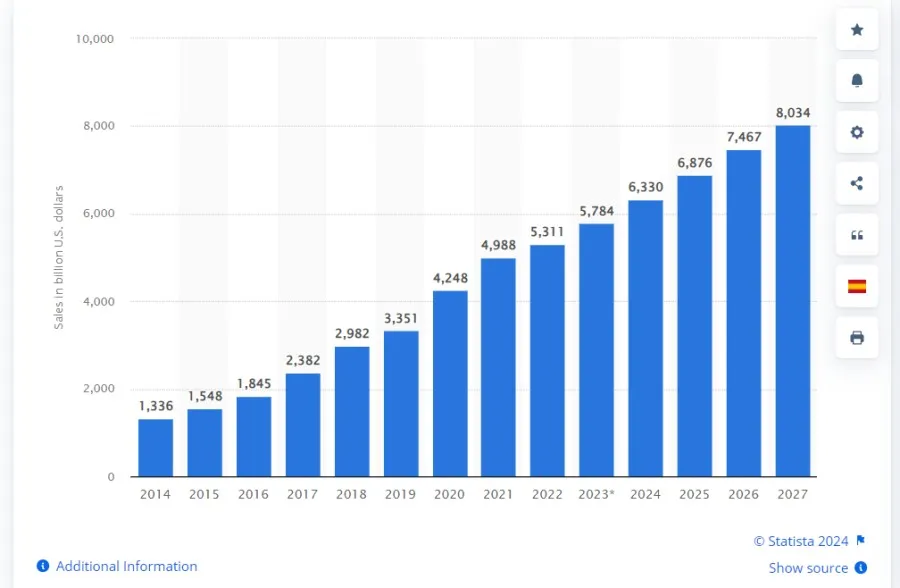
With such numbers, there’s no looking back. So, to stand out among the competitors, businesses are continuously searching for new ways to offer the best experience to their users.
Due to this, there is always something new coming up and businesses are benefitting from it. However, to offer the best user experience, it is essential to be proactive by being updated with the latest technologies and innovations.
To help you stay competitive in the market, we have created a list of eCommerce app development trends that’ll help you stand out. Let’s look at them!
Market Overview
The eCommerce industry has recently experienced significant growth and is expected to reach US$5145.00 billion by 2029.
In 2023, US online sales reached $1.137 trillion, showing a 9.3% growth rate. By 2024, it is estimated that more than 21.2% of all retail sales will happen online.
Most important cross-border eCommerce markets include the United States, China, and Europe, with transactions expected to grow by 107% by 2028.
Renewable and green eCommerce initiatives are gaining pace, with consumers willing to pay extra for environment-friendly products.
Explore how ValueCoders' expertise can elevate your brand's online presence and drive growth.
The eCommerce market can reach $6.3 trillion by the end of 2023. By 2024, more than 21.2% of all retail sales will happen online.
In 2023, the eCommerce sales grew by 10.4% and it is projected that in 2026, it will be over $8.1 trillion.
It not just shows that eCommerce is a profitable market but a major player in the retail industry. It has been divided into categories like groceries, health, and autos representing a substantial portion of total U.S. retail sales.
The industry is showing a shift towards greater infiltration in traditionally weak categories like groceries and health, offering substantial growth opportunities.
Some technologies like AR/VR, social commerce, and drone delivery may improve the eCommerce experience further and reduce the gap with traditional shopping.
Therefore, the eCommerce sector is dynamic and is bound for continued growth and innovation. This makes it essential for businesses to stay ahead of trends and use emerging technologies to remain competitive.
Also Read: Elevating eCommerce with Predictive Analytics: Use Cases, Real-World Examples, and Adoption Insights
Importance of Understanding eCommerce Innovations
Staying ahead is crucial in this changing eCommerce market. Understanding the importance of upcoming trends can provide businesses with a competitive advantage and help them progress toward success.
Let’s look at relevance of understanding upcoming eCommerce trends.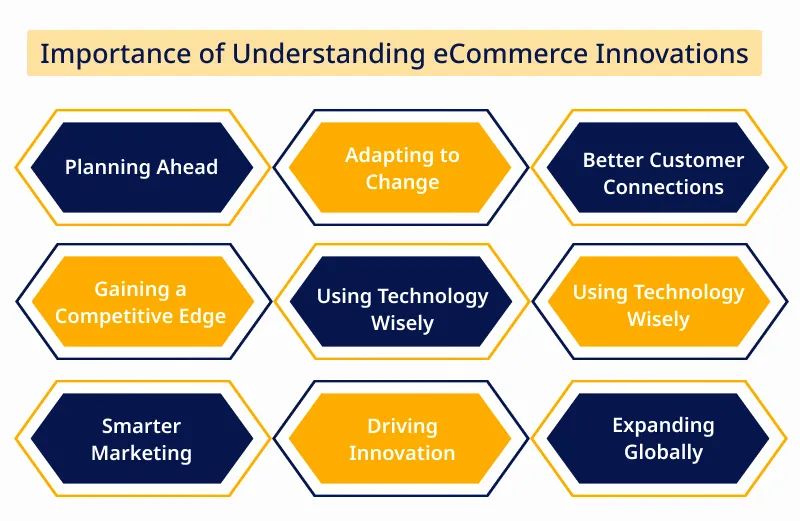
1. Planning Ahead
Predicting what’s going to happen in online shopping helps businesses get ready and make plans to match what customers want. This helps them make preperations early and take advantage of new chances to sell things.
2. Adapting to Change
The Internet shopping world is constantly changing because of the advent of new technologies and how people shop. Knowing what’s coming helps businesses change swiftly and take advantage of new chances to do well.
3. Better Customer Connections
Predicting and integrating upcoming trends ensures businesses can effectively meet customer needs. This heightened relevance fosters stronger customer connections, leading to loyalty and lasting relationships.
4. Gaining a Competitive Edge
In a busy market, staying updated on online shopping changes helps businesses do better than others. Businesses that come up with new and smart ideas and match with customers’ needs are more likely to get noticed.
5. Using Technology Wisely
Being aware of what’s going to happen in online shopping helps businesses use the newest technology wisely. Whether it’s using smart computer programs or trying out virtual reality, companies can use technology to make customers happier.
6. Smarter Marketing
Future trends influence consumer behavior. Matching marketing plans with these changes helps businesses make ads that reach the right people and have a bigger effect.
7. Driving Innovation
Understanding eCommerce trends fuels innovation in product development. Companies can create offerings that resonate with changing consumer demands, driving progress in their product lines.
8. Expanding Globally
eCommerce trends often have a global reach. Adopting them helps businesses expand their reach to global markets, opening doors to new opportunities and diverse customer bases.
Knowing the pros and cons of eCommerce trends is crucial. It helps businesses to create effective strategies, ensuring they stay relevant, competitive, and ready for whatever comes their way.
Discover how ValueCoders can tailor innovative solutions to meet your brand’s objectives.
Top eCommerce App Trends 2025
In 2025, eCommerce innovations are transforming the way we shop online. Let’s look into the emerging trends in eCommerce apps shaping the future of digital commerce:
1. Augmented & Virtual Reality
AR and VR technologies are transforming the eCommerce market by providing users with an immersive experience.
AR places digital content into the physical world, helping users to see products in real-world environments even before they make a final purchase decision.
On the other hand, VR creates entirely virtual environments, offering simulated shopping experiences.
Partnering with top eCommerce development companies can help include features like:
- Interactive product visualization
- Virtual try-on for clothing and accessories
- Virtual store tours and showroom experiences
Example: IKEA’s AR app lets customers see how furniture would look in their homes before buying.
Also read: Top 13 Virtual And Augmented Reality Companies Of 2025
2. Artificial Intelligence (AI) & Machine Learning (ML)
AI and ML are the talk of the town these days. In eCommerce, these innovations provide personalized recommendations, chatbots, and predictive analytics.
AI is driving eCommerce success by analyzing vast data to recognize customer behavior and preferences. This helps businesses offer tailored or personalized shopping experiences.
Key features include:
- Personalized product recommendations
- AI-driven chatbots for customer support
- Predictive analytics for demand forecasting
Example: Using AI in eCommerce app development, Amazon’s recommendation engine suggests products based on past purchases and browsing history.
3. Internet of Things (IoT)
The next on the list of eCommerce app trends in 2025 is IoT. It connects physical devices to the internet, offering innovative functionalities in eCommerce.
Devices such as smart home assistants, wearables, and connected appliances facilitate seamless shopping experiences. Some of the eCommerce app features include:
- Automatic reordering of products
- Real-time inventory tracking
- Personalized recommendations based on usage data
Example: Smart refrigerators that automatically reorder groceries when supplies are low.
4. Voice Commerce
Voice commerce helps users shop using voice commands. This requires virtual assistants like Alexa or Google Assistant. Users can simply speak and place orders, making shopping hands-free and convenient.
Key features include:
- Voice-activated product search and purchase
- Integration with virtual assistants and smart speakers
- Seamless checkout process using voice commands
Example: Walmart’s voice shopping feature allows customers to use voice commands to add items to their cart.
See how ValueCoders can optimize your mobile app for seamless shopping and increased customer engagement.
5. Mobile Commerce (M-commerce)
M-commerce or mobile commerce innovations means shopping through mobile phones like smartphones and tablets. With the increasing use of mobile devices for shopping online, eCommerce platforms are optimizing their websites and apps for mobile users.
Key features include:
- Responsive design for mobile-friendly browsing
- Mobile payment options such as Apple Pay and Google Pay
- Seamless checkout process on small screens
Example: The Amazon mobile app offers a streamlined shopping experience optimized for smartphones.
Also Read: Pick Out The Best Open Source E-Commerce Platform For Your Project
6. Social Commerce
Social commerce integrates eCommerce innovations functionalities into social media platforms, helping users to discover and purchase products directly from their favorite social networks. Hire eCommerce developers to include features like:
- Shoppable posts and product tags on social media
- Live shopping events and influencer collaborations
- Seamless integration with social media platforms
Example: Instagram offers a shopping feature that allows users to browse and purchase products directly from the app.
Also read: Top ECommerce Development Companies In India To Change Business
7. Sustainable eCommerce
Sustainable eCommerce focuses on environmentally friendly practices and products, catering to consumers’ growing awareness of environmental issues.
Key features include:
- Use of eco-friendly materials and packaging
- Ethical sourcing and fair trade practices
- Carbon-neutral shipping options
Example: Patagonia’s eCommerce platform emphasizes sustainable materials and ethical manufacturing processes.
8. (PWAs)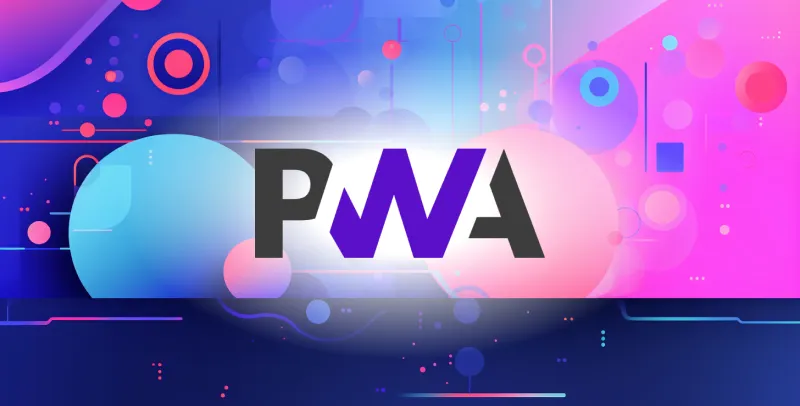
PWAs are revolutionary eCommerce technologies that combine the best features of websites and native apps, such as offering fast loading times, offline functionality, and push notifications.
Key features include:
- Cross-platform compatibility
- Offline access to content and features
- Engaging user experiences with app-like interfaces
Example: The Starbucks PWA provides a fast and seamless mobile ordering experience without requiring users to download a separate app.
Also Read – A Comprehensive Guide To Create An Ecommerce App From Scratch
9. Blockchain Technology
Blockchain technology ensures transparency, security, and traceability in eCommerce transactions.
Key latest eCommerce app features include:
- Immutable and decentralized ledger for transaction records
- Enhanced security through cryptography
- Smart contracts for automated and trustless transactions
Example: IBM’s Food Trust platform uses blockchain to track the provenance of food products, ensuring food safety and transparency.
10. Enterprise Resource Planning Solutions (ERP)
ERP solutions integrate various business processes into a single platform, including inventory management, order processing, and customer relationship management.
Key features include:
- Centralized data management and analytics
- Streamlined workflows and automated processes
- Real-time insights into business performance
Example: SAP’s ERP system provides end-to-end visibility and control over eCommerce operations, improving efficiency and scalability.
Learn how ValueCoders can leverage AI to personalize recommendations and streamline customers' shopping.
11. Chatbots and AI-powered Customer Support
AI-powered chatbots provide instant customer support, answering questions, resolving issues, and assisting with purchases.
Key features include:
- 24/7 availability for customer inquiries
- Natural language processing for human-like interactions
- Personalized assistance based on customer data
Example: The chatbot on the Nike website helps customers find products, track orders, and get answers to common questions.
12. Cloud Integration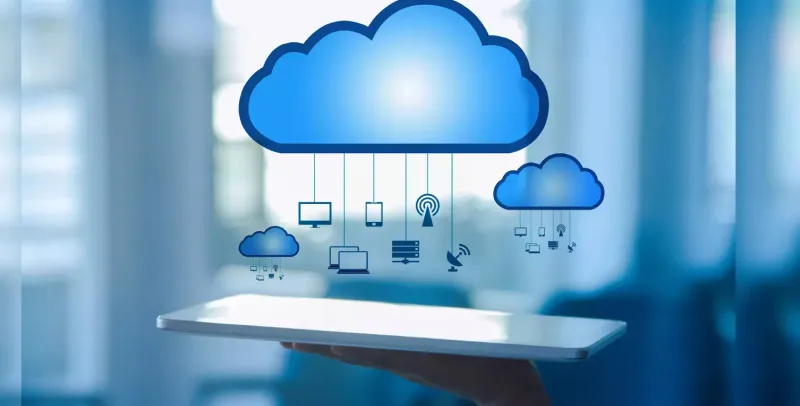
Cloud-based eCommerce innovations platforms offer scalability, flexibility, and accessibility, allowing businesses to manage their online stores from anywhere with an internet connection.
Key features include:
- Scalable infrastructure for handling fluctuating demand
- Remote access to data and applications
- Automated backups and disaster recovery
Example: Shopify’s cloud-based eCommerce platform provides merchants with tools for building and managing online stores without hosting or infrastructure management.
13. Software as a Service (SaaS)
SaaS solutions provide businesses with access to software applications and eCommerce development services on a subscription basis, reducing the need for upfront investment in hardware or software infrastructure.
Key features include:
- Pay-as-you-go pricing model
- Automatic updates and maintenance
- Scalable solutions tailored to eCommerce needs
Example: BigCommerce offers a SaaS platform for creating and managing online stores, providing features like website design, hosting, and payment processing in a single package.
14. Multiple Payment & Collection Options
Offering a variety of payment methods and collection options caters to diverse customer preferences and enhances convenience.
Key features include:
- Make it easy for customers to pay using cards, digital wallets, or other ways.
- Give them choices for getting their stuff, like delivery to their home, picking up from the store, or getting it at the curb.
- Keep their payments safe and stop fraud with secure processing.
Example: PayPal Checkout allows customers to pay using their PayPal account, credit/debit card, or other payment methods at checkout on eCommerce websites.
15. Warehouse & Delivery Automation Technologies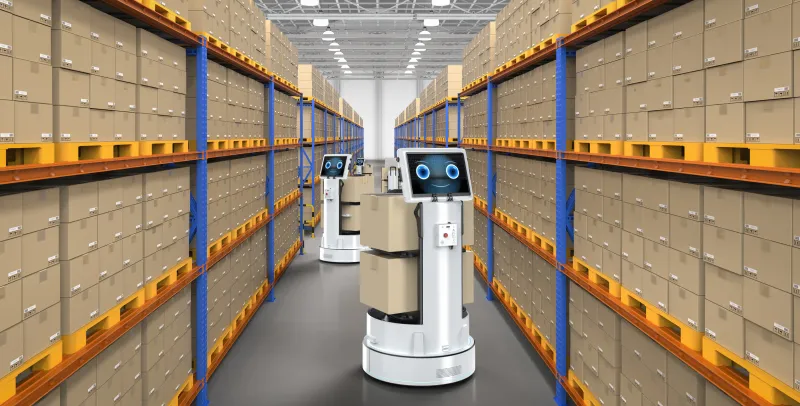
Robots, AI, and machines that work automatically make warehouses and delivering things work better. This makes it faster and cheaper to get stuff ready and sent out when people order online.
Key features include:
- Automated picking, packing, and sorting of orders
- Autonomous vehicles for warehouse transportation
- Real-time tracking and optimization of delivery routes
Example: Amazon has fulfillment centers that use robots to assist with order processing. It reduces the time and labor required to fulfill customer orders.
Choose ValueCoders to create intuitive and engaging eCommerce apps to boost conversions.
These eCommerce innovations are changing how we shop. They offer personalized experiences, improving efficiency and shaping the future of retail.
Selecting the Right eCommerce Technology Trends
Opting for the right eCommerce technology trends is important for the success of your online business. With increasing eCommerce innovations, it can be difficult to finalize which trends will benefit your brand the most.
Let’s take a look at some steps that can help you make informed decisions for the next-gen shopping apps: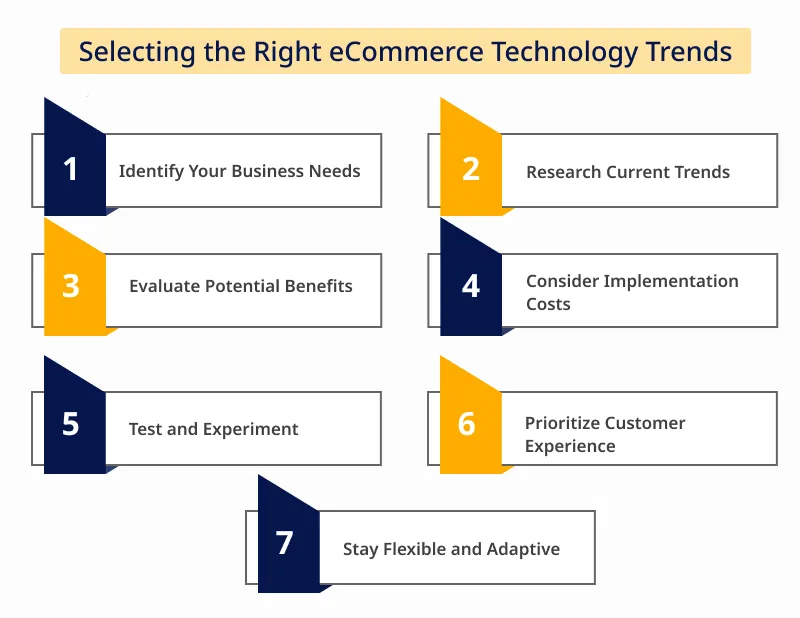
- Understand Your Business Needs: First, it is important figure out what your brand needs and wants. Think about your target audeince, product you’re selling, and how you want to grow.
- Research Current Trends: To stay up-to-date with new eCommerce ideas, read industry reports, join online seminars, and talk to the experts. Find trends that match what you’re aiming for and can help with your business issues or chances for growth.
- Evaluate Potential Benefits: Think about how each eCommerce trend can help your brand. For instance, if you sell clothes using augmented reality (AR) could make shopping better by helping your customers try on clothes virtually before buying them.
- Consider Implementation Costs: Check how much it costs and what you need to use each new idea. See if your budget and setup can handle adding new tools and systems. Getting help from eCommerce companies in India could be a good way to make it cheaper and easier.
- Test and Experiment: Think about trying out new eCommerce ideas on a small scale first. This helps you see if they work well and if they’re possible before going all in. Doing this helps you learn useful things and decide what to do based on real information.
- Prioritize Customer Experience: Pick technology ideas that make customers happier overall. Focus on things like suggesting products they might like, making it easy to buy stuff, or being quick to help them if they need it. Choose the best solutions that make customers feel good and want to come back again to your application.
- Stay Flexible and Adaptive: The way people buy things online is changing constantly, so it’s important that businesses also be ready to adapt to change. Keep an eye on what’s happening in the online shopping world and what people like to buy. Be ready to change your plans to keep up with the market.
Explore how ValueCoders' expertise can enhance the performance and accessibility of your online store.
By following these steps, you can select the suitable eCommerce technology trends that matches with your brand’s objectives and position your business. This can help in long-term success in the competitive online marketplace.
Partner with a reputable retail & eCommerce software development services provider for best results.
In Closing
eCommerce is redefining with cutting-edge technologies and eCommerce innovations. As we look ahead, the following trends will shape the industry:
- AR and VR will change the shopping experience, helping customers to try on products virtually and visualize them in their own spaces.
- Social Commerce will continue to gain popularity, allowing businesses to take benefit of social media platforms for smooth purchasing experiences.
- Drone Delivery and other innovative logistics solutions will simplify the fulfillment process, ensuring faster and more efficient deliveries.
Businesses must make use of these eCommerce innovations with the help of cutting-edge eCommerce consulting services to stay ahead of the curve.
At ValueCoders, our team of experienced developers is well-equipped to help you navigate this ever-changing landscape.
Don’t miss out on the next wave of eCommerce. Connect with us to discuss your app development needs and access the full potential of eCommerce innovations.


